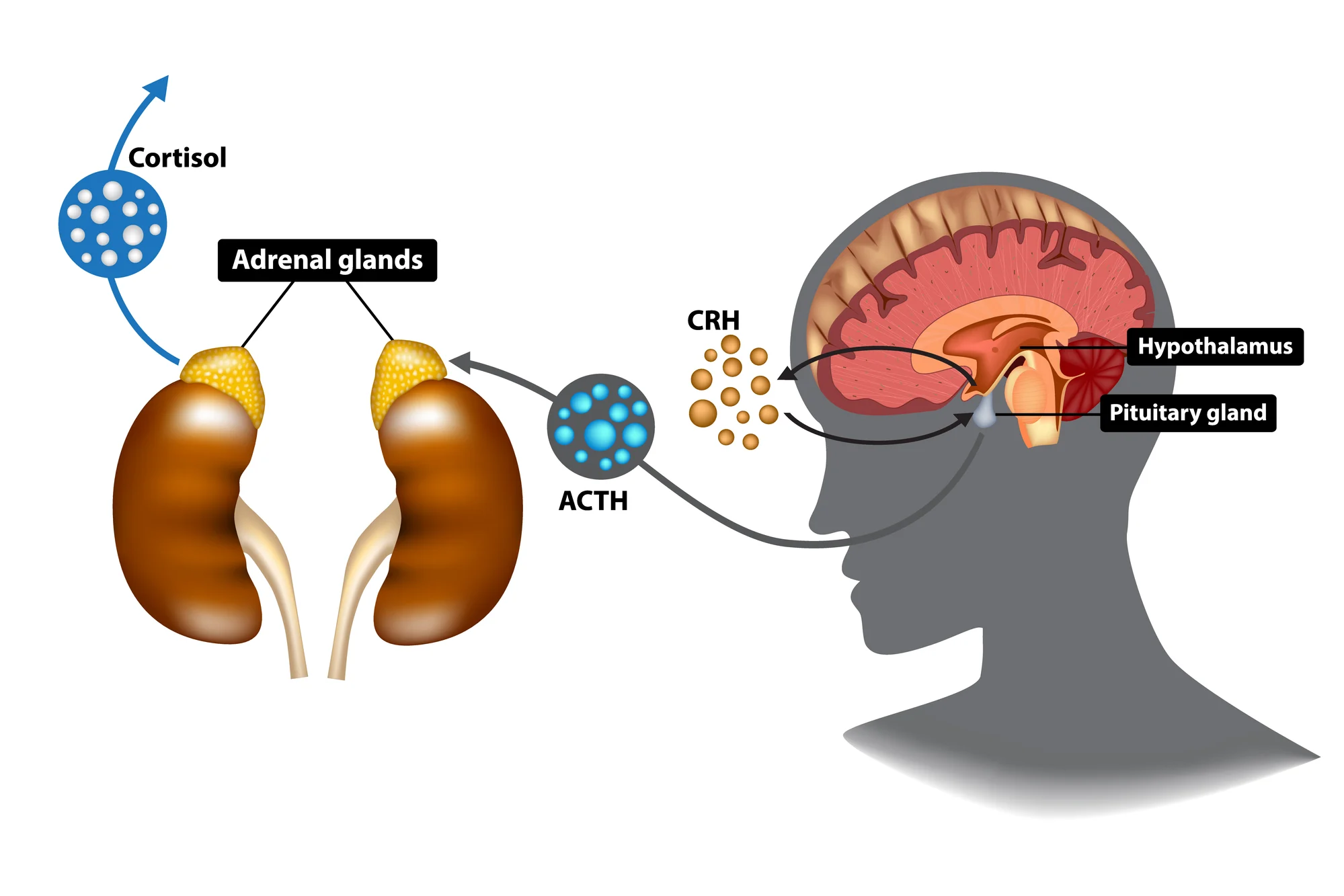Unveiling Nature's Calm: Eliana Adams on Ashwagandha and Emotional Well-Being
Posted on February 8, 2024 • 7 minutes • 1375 words
Table of contents
- 1. What exactly is Ashwagandha, and why has it gained such popularity in recent years?
- 2. Moving on to the core question: Does Ashwagandha make you emotionless?
- 3. How does Ashwagandha affect the brain and emotional health?
- 4. Are there any scientific studies that support the claim that Ashwagandha helps with emotional balance?
- 5. Can Ashwagandha consumption lead to a decrease in emotional sensitivity or empathy?
- 6. How should someone start taking Ashwagandha if they’re interested in its emotional health benefits?
- 7. What are the potential side effects of Ashwagandha?
- 8. Is Ashwagandha a solution for everyone looking to manage stress and emotional health?
- 9. For how long does one need to take Ashwagandha to notice an effect on their emotional well-being?
- 10. Lastly, what future research would you like to see regarding Ashwagandha and emotional health?
In this exclusive interview for ScienceChronicle.org, we delve into the fascinating world of botanical pharmacology with renowned Canadian pharmacologist, Eliana Adams. With a focus that spans the breadth of nature’s pharmacy, Adams has dedicated her career to uncovering the medicinal secrets held by plants, a pursuit that has led her to become a leading voice in the field. Today, we explore one of the most intriguing yet controversial topics in herbal supplementation: the effects of Ashwagandha.
| Dr. Eliana Adams |
|---|
 |
As a herb that has been used for centuries in traditional Ayurvedic medicine, Ashwagandha’s popularity has surged in recent years, touted for its stress-relieving properties. However, amidst its rising acclaim, questions have emerged about its impact on emotional well-being, with many asking: Does Ashwagandha make you emotionless? Eliana Adams offers her expert insights to shed light on this question, guiding us through the science behind Ashwagandha and its effects on our emotional landscape.
1. What exactly is Ashwagandha, and why has it gained such popularity in recent years?
Eliana Adams: Ashwagandha, known scientifically as Withania somnifera, is a traditional herb used in Ayurvedic medicine . It’s classified as an adaptogen , meaning it’s believed to help your body manage stress more effectively. Its popularity has soared due to its purported benefits, which include reducing stress and anxiety , improving sleep quality, and enhancing overall well-being. The modern lifestyle demands remedies that are not only effective but also natural and holistic, which is why Ashwagandha has come into the spotlight.
2. Moving on to the core question: Does Ashwagandha make you emotionless?
Eliana Adams: It’s a common misconception that Ashwagandha, or any adaptogen for that matter, can numb your emotions. The reality is that Ashwagandha works by moderating the body’s stress response mechanisms. By potentially lowering cortisol levels, it can help reduce the physiological impact of stress. This doesn’t mean it makes you emotionless but rather might help in managing stress-related emotions, making them feel less overwhelming.
3. How does Ashwagandha affect the brain and emotional health?
Eliana Adams: Ashwagandha is thought to influence brain health by acting on the neuroendocrine system, which includes the hypothalamus, pituitary gland, and adrenal glands, collectively known as the HPA axis .
| HPA Axis and stress response |
|---|
 |
This axis plays a crucial role in stress response. Ashwagandha may help in balancing the secretion of stress hormones like cortisol and adrenaline, which in turn can have a calming effect without blunting emotions. Additionally, it might enhance brain function and mood by influencing key neurotransmitters involved in mood regulation, such as serotonin and dopamine.
4. Are there any scientific studies that support the claim that Ashwagandha helps with emotional balance?
Eliana Adams: Yes, there are several studies. One randomized controlled trial published in the Current Developments in Nutrition found that Ashwagandha significantly reduced stress and anxiety levels in adults when compared to a placebo . Another study suggested that it might improve resistance towards stress, thereby improving individuals' overall quality of life. However, it’s important to note that while these studies are promising, more research is needed to fully understand its effects on emotional health.
5. Can Ashwagandha consumption lead to a decrease in emotional sensitivity or empathy?
Eliana Adams: Based on the current scientific understanding, there’s no evidence to suggest that Ashwagandha decreases emotional sensitivity or empathy. Its primary function is to help the body adapt to stress and potentially reduce the overactivation of the stress response, which can, in turn, support emotional resilience and well-being. Emotional sensitivity and empathy are complex traits influenced by a multitude of factors, and adaptogens like Ashwagandha are not known to diminish these capacities.
6. How should someone start taking Ashwagandha if they’re interested in its emotional health benefits?
Eliana Adams: Anyone interested in trying Ashwagandha should start with consulting a healthcare provider, especially if they are taking other medications or have underlying health conditions. It’s available in various forms, including capsules, powders, and teas. Starting with a low dose and gradually increasing it as needed can help minimize any potential side effects. It’s also crucial to choose high-quality, certified products to ensure safety and efficacy.
7. What are the potential side effects of Ashwagandha?
Eliana Adams: While Ashwagandha is generally considered safe for most people, some may experience side effects, such as upset stomach, nausea, and drowsiness. In rare cases, more severe reactions can occur, particularly at high doses.
| Side effects like nausea can occur in some people |
|---|
 |
It’s also important to note that Ashwagandha may interact with certain medications, including those for thyroid, blood sugar, and blood pressure, so consultation with a healthcare provider is key.
8. Is Ashwagandha a solution for everyone looking to manage stress and emotional health?
Eliana Adams: Like any supplement, Ashwagandha isn’t a one-size-fits-all solution. Its effectiveness can vary from person to person. For some, it may offer significant benefits in managing stress and supporting emotional health, while others may not notice as much of an effect.
| Holistic approach to stress management |
|---|
 |
It’s important to approach it as part of a holistic strategy for stress management that includes a healthy lifestyle, regular exercise, and possibly other therapies as recommended by a healthcare provider.
9. For how long does one need to take Ashwagandha to notice an effect on their emotional well-being?
Eliana Adams: The time frame can vary widely among individuals. Some may notice benefits within a few weeks, while for others, it might take several months. Consistency is key when incorporating Ashwagandha into your routine. It’s also crucial to maintain realistic expectations and recognize that it’s a supplement meant to support, not replace, other health and wellness practices.
10. Lastly, what future research would you like to see regarding Ashwagandha and emotional health?
Eliana Adams: Future research should aim at understanding the long-term effects of Ashwagandha on emotional health, exploring its impact on different populations, including those with specific emotional health disorders. I’d also like to see studies that compare Ashwagandha with other adaptogens and conventional treatments for stress and emotional well-being, to better understand where it fits within the broader spectrum of therapeutic options.
This interview with Eliana Adams offers a comprehensive look at the nuanced role of Ashwagandha in managing stress and emotional health. While it’s clear that Ashwagandha can be a valuable tool in the natural wellness toolkit, Adams emphasizes the importance of a balanced approach and consultation with healthcare professionals. As research continues to evolve, so too will our understanding of how best to harness the benefits of this ancient herb.
A short bio of Eliana Adams
Eliana Adams is a distinguished figure in the field of pharmacology, with a career that spans continents and specializations. Her academic journey began at the University of Melbourne, Australia, where she earned her first degree in Biochemistry. Fueled by a passion for understanding the intricate mechanisms of the human body, she pursued and completed her Ph.D. in Immunology at the University of Washington. This pivotal phase of her career laid the groundwork for her future contributions to science and medicine.
Following her Ph.D., Adams joined Pfizer, where she played a significant role in the development of RNA vaccines. Her work during this period not only contributed to groundbreaking advancements in vaccine technology but also deepened her expertise in molecular biology and immunotherapy.
Seeking to explore the intersection of nature and medicine further, Adams embarked on a post-doctoral fellowship in Canada, focusing on drug discovery. This venture led her to investigate biologically active ingredients in botanical sources from various parts of the world. Her research during this time aimed at harnessing nature’s potential to offer innovative therapeutic solutions.
Adams' journey then took her to a niche within pharmacology, as she joined a small pharmaceutical company specializing in pain-relief drugs. It was here that she gained extensive experience in psychopharmacology, exploring the effects of pharmaceutical compounds on the brain and behavior. Her work has significantly impacted pain management, contributing to the development of safer, more effective pain-relief medications.
Throughout her career, Eliana Adams has demonstrated an unwavering commitment to advancing medical science through research, innovation, and a deep understanding of both the molecular world and the natural environment. Her diverse expertise reflects a unique blend of disciplines, making her a respected voice in pharmacology, immunology, and botanical drug discovery.
Share
Tags
Counters

